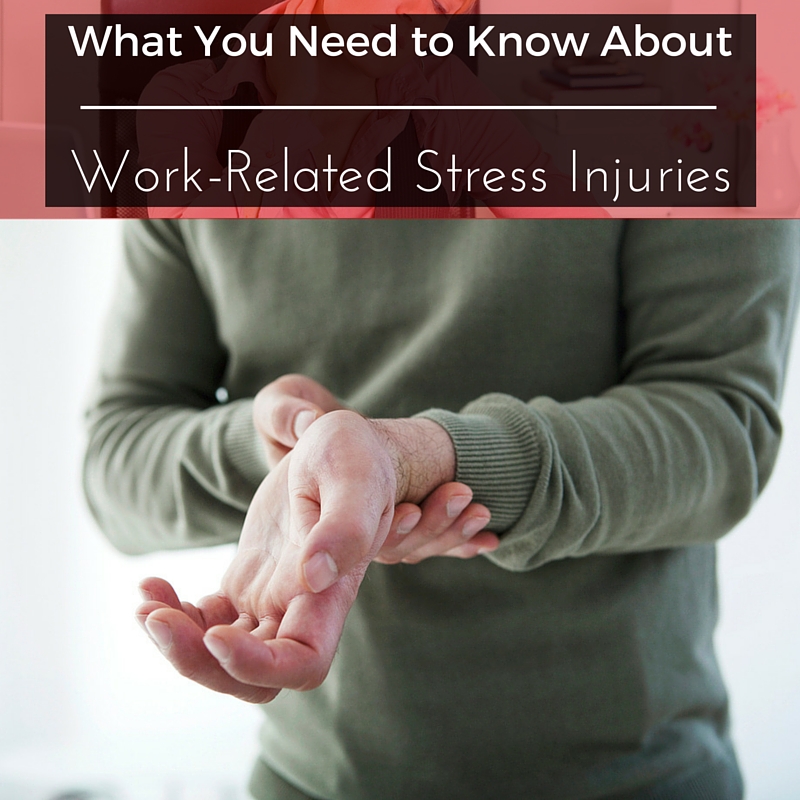
A work-related stress injury may be psychological or physical, both of which are compensable under workers’ compensation. Mental stress injuries can include post-traumatic stress disorder or other emotional issue caused by repeated work stress, while physical stress injuries may include carpal tunnel syndrome or other repetitive movement injury putting stress on muscles and joints.
Physical Stress Injuries
Physical workplace stress injuries are easier to identify than mental stress injuries. However, physical stress injuries can occur in different areas of the body or in many different job types. A data entry operator may suffer from carpal tunnel syndrome after spending every day typing or a warehouse employee may suffer from chronic back pain due to muscle stress on a regular basis. A physical stress injury entitles you to workers’ comp coverage for your medical bills and any missed work due to your injury.
In order to receive compensation, you must seek medical attention for your injury and follow their recommendations for healing the injury. In some cases, your doctor may determine that your injury qualifies you for disability or vocational rehabilitation.
Emotional or Mental Stress Injuries
It is more difficult to prove that you suffered emotional or mental stress injuries through your employment. Therefore, workers’ comp insurance is often reluctant to cover your costs for those types of injuries.
In some states, workers’ comp is not required to cover emotional stress, but it is possible to seek compensation under personal injury laws. However, in order to qualify for a personal injury claim, you must prove negligent infliction of emotional distress by proving that your employer or a co-worker exhibited outlandish conduct that led to your injury.
Disability Claims
When your injury results in your inability to perform your regular job duties for an extended period or prevents you from working at all, you may be eligible for a disability claim. If you work in a high-stress industry, such as law enforcement or fire service, it may be easier to prove a mental claim such as post-traumatic stress disorder, but it will still be difficult to prove permanent disability due to a mental injury.
The first step is to talk to your supervisors and ask them to document your injury. It is possible your company offers mental health counseling services that may help you manage your emotional injury. Keep in mind that many companies have rules regarding how workers’ compensation claims are reported, so be sure to follow those rules in order to meet the requirements for compensation.
If you or a loved one has suffered a physical or mental work-related stress injury, contact Lundy Law to learn what rights you may have. Hiring an attorney does not mean you plan to sue your employer. In fact, under Pennsylvania law, you are not permitted to sue an employer for a workplace injury in most cases. Instead, Lundy Law will simply work to get you the compensation you deserve under the law. You can arrange for a no-obligation consultation by calling 1-800-Lundy Law or by completing the simple form on our website.
















